
Often debated and long-awaited, The White House released its long-anticipated America’s Maritime Action Plan (MAP), a 40+ page blueprint aimed at what it calls a new “Maritime Golden Age” for the United States.The document, developed under Executive Order 14269, lays out a four-pillar strategy to rebuild domestic shipbuilding capacity, expand the U.S.

Taiwan remained on high alert on Wednesday after China staged massive military drills around the island the previous day, keeping its emergency maritime response centre running as it monitored Chinese naval manoeuvres, the coast guard said.The exercises named "Justice Mission 2025" saw China fire dozens of rockets towards Taiwan and deploy a large number of warships and aircraft near the island
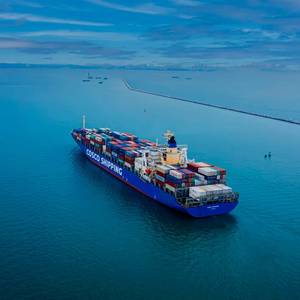
China's trade surplus topped $1 trillion for the first time as manufacturers seeking to avoid President Donald Trump's tariffs shipped more to non-U.S. markets in November, with exports to Europe, Australia and Southeast Asia surging.Shipments to the United States dropped by close to one-third from the same month a year before."The tariff cuts agreed under the U.S.
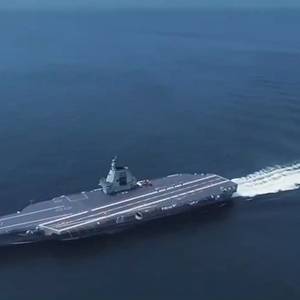
The commissioning of China's latest aircraft carrier this week marks a new chapter in its military modernisation effort but security analysts and regional diplomats say tough challenges lie ahead before it can be made fully operational.President Xi Jinping attended the commissioning and flag-presenting ceremony of the Fujian in Hainan province on Wednesday
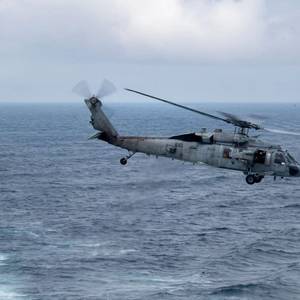
A U.S. Navy helicopter and a fighter jet crashed separately into the South China Sea within the space of an hour during routine operations conducted from the same aircraft carrier on Sunday, the U.S. Navy said, adding all personnel were safe.The incidents came while President Donald Trump was on a visit to Asia.
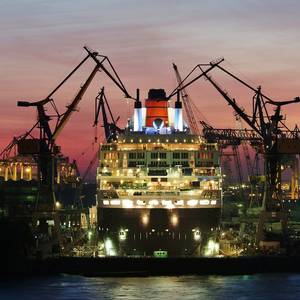
China's sanctions against five U.S.-linked affiliates of South Korean shipbuilder Hanwha Ocean are seen as a warning gesture without immediate impact, and Beijing is unlikely to gain much by expanding them, analysts said on Wednesday.The move, announced on Tuesday when the U.S. and China began charging additional port fees targeting each other's vessels
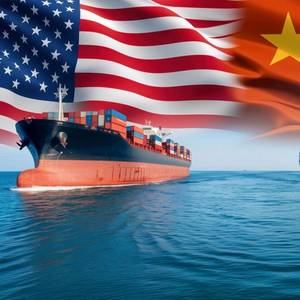
Vessels owned or operated by U.S. firms and individuals - or those built in the United States or that fly the U.S. flag - will be charged additional port fees per voyage starting on October 14, China's transport ministry said.The fees are a counter-measure against upcoming U.S. port fees on Chinese ships, the ministry said on Friday.
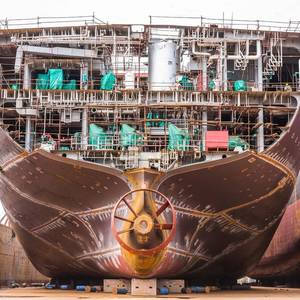
The U.S. is one week away from imposing port fees on certain vessels with links to China, a move expected to cost the top 10 carriers $3.2 billion next year as President Donald Trump seeks to address China's growing dominance on the high seas."While some observers believe the October 14 deadline may be extended - or even scrapped - as part of broader negotiations

The military and Coast Guard budgets are established that will benefit the U.S. ship building and repair sector, but what will stimulate the commercial yards?This author has been scratching his head of late, after a thrilling dive into July’s U.S. Big Beautiful Bill Act, and has asked several colleagues where the funding for support commercial shipbuilding can be found? To answer that

The Front Tyne oil tanker was sailing through the Gulf between Iran and the United Arab Emirates on Sunday when just past 9:40 a.m. shiptracking data appeared to show the massive vessel in Russia, in fields better known for barley and sugar beets.By 4:15 p.m., the ship's erratic signals indicated it was in southern Iran near the town of Bidkhun
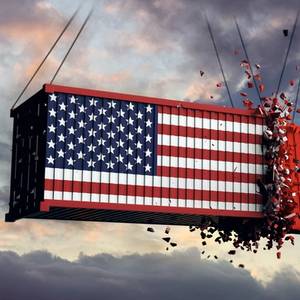
Beijing increased its tariffs on U.S. imports to 125% on Friday, hitting back against U.S. President Donald Trump's decision to hike duties on Chinese goods and raising the stakes in a trade war that threatens to up-end global supply chains.China's retaliation intensified the economic turmoil unleashed by Trump's tariffs
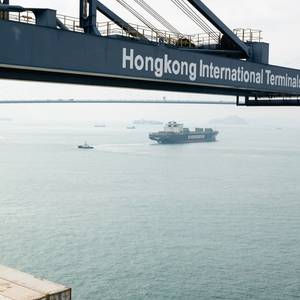
Some shipping companies are discreetly moving operations out of Hong Kong and taking vessels off its flag registry. Others are making contingency plans to do so.Behind these low-profile moves, six shipping executives said, lie concerns that their ships could be commandeered by Chinese authorities or hit with U.S. sanctions in a conflict between Beijing and Washington.